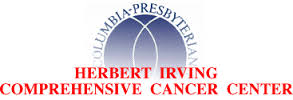Topical Tazarotene in Treating Patients With Basal Cell Skin Cancer and Basal Cell Nevus Syndrome on the Face
| Status: | Completed |
|---|---|
| Conditions: | Skin Cancer, Cancer, Dermatology |
| Therapuetic Areas: | Dermatology / Plastic Surgery, Oncology |
| Healthy: | No |
| Age Range: | 18 - 75 |
| Updated: | 4/21/2016 |
| Start Date: | July 2004 |
| End Date: | June 2012 |
A Phase II Single Arm Open-Label Clinical Trial of Chemotherapy of BCC's With Tazarotene 0.1% in Subjects With Basal Cell Nevus Syndrome
RATIONALE: Drugs used in chemotherapy, such as tazarotene, work in different ways to stop
the growth of tumor cells, either by killing the cells or by stopping them from dividing.
PURPOSE: This phase II trial is studying topical tazarotene to see how well it works in
treating patients with basal cell skin cancer and basal cell nevus syndrome on the face.
the growth of tumor cells, either by killing the cells or by stopping them from dividing.
PURPOSE: This phase II trial is studying topical tazarotene to see how well it works in
treating patients with basal cell skin cancer and basal cell nevus syndrome on the face.
OBJECTIVES:
- Determine whether topical tazarotene, administered over a period of 18 months as a
chemopreventive agent, reduces the incidence of basal cell carcinomas (BCCs) on treated
skin in patients with basal cell nevus syndrome (BCNS).
- Expand and refine chemopreventive strategies in patients with BCNS who are at high risk
for the development of BCCs.
OUTLINE: This is an open-label, multicenter study.
Patients apply topical tazarotene cream to the face once daily for 18 months in the absence
of unacceptable toxicity.
- Determine whether topical tazarotene, administered over a period of 18 months as a
chemopreventive agent, reduces the incidence of basal cell carcinomas (BCCs) on treated
skin in patients with basal cell nevus syndrome (BCNS).
- Expand and refine chemopreventive strategies in patients with BCNS who are at high risk
for the development of BCCs.
OUTLINE: This is an open-label, multicenter study.
Patients apply topical tazarotene cream to the face once daily for 18 months in the absence
of unacceptable toxicity.
List of Inclusion Criteria:
1. Study subjects must have at least one basal cell carcinoma ≥ 3mm in diameter (target
lesion) on any area of the skin except the face, chest, and back (and not impinging
on vital sites) diagnosed clinically by a Study Investigator at the baseline visit.
2. Study subjects must meet diagnostic criteria for basal cell nevus syndrome including
major criterion #1 plus one additional major criterion or two of the minor criteria
outlined in Table I. A first degree relative would satisfy BCNS diagnostic criteria
with any two major criteria or any single major plus two minor criteria.
Table I. BCNS Diagnostic Criteria
Major criteria
1. More than 2 BCCs or one under the age of 20 years
2. Odontogenic keratocysts of the jaw proven by histology
3. Three or more palmar and/or plantar pits
4. Bilamellar calcification of the falx cerebri (if less than 20 years old)
5. Fused, bifid, or markedly splayed ribs.
6. First degree relative with basal cell nevus syndrome (BCNS)
7. PTCH1 gene mutation in normal tissue*
Minor criteria
1. Macrocephaly determined after adjustment for height
2. Congenital malformations: cleft lip or palate, frontal bossing, "coarse face."
3. Skeletal abnormalities: Sprengel deformity, marked pectus deformity
4. Radiological abnormalities: bridging of the sella turcica, vertebral anomalies such
as hemivertebrae, fusion or elongation of the vertebral bodies.
5. Ovarian fibroma
6. Medulloblastoma
3.The subject is from 18-75 years of age, inclusive.
4. If the subject is female and of child-bearing potential (women are considered not of
childbearing potential if they are at least 2 years post-menopausal and/or surgically
sterile), she:
i. has been using adequate contraception (abstinence, IUD, birth control pills, or
spermicidal gel with diaphragm or condom) since her last menses and will use adequate
contraception during the study, and ii. is not lactating, and iii. has documented one
negative serum pregnancy test within 14 days prior to study entry.
5. The subject is willing to abstain from application of non-study topical medications to
the skin of the face for the duration of the study, including prescription and over the
counter preparations.
6. The subject is willing not to have targeted BCCs treated by their PSCP unless the BCCs
are documented by Study Investigators, preferably on two separate visits, except when the
PSCP believes that delay in treatment potentially might compromise the health of the
subject.
List of Exclusion Criteria:
1. The subject has used topical or systemic therapies that might interfere with the
evaluation of the study medication during the study.
2. The subject has a history of hypersensitivity to any of the ingredients in the study
medication formulations.
3. The subject is unable to return for follow-up tests.
4. The subject has uncontrolled systemic disease, including known HIV positive patients.
5. The subject has a history of other skin conditions or significant illness that would
interfere with evaluation of the study medication.
6. Any condition or situation which in the Investigator's opinion may put the subject at
significant risk, could confound the study results, or could interfere significantly
with the subject's participation in the study.
7. The subject has a history of invasive cancer within the past five years excluding
non-melanoma skin cancer, Stage I cervical cancer, or CLL Stage 0.
We found this trial at
2
sites
747 52nd St
Oakland, California 94609
Oakland, California 94609
(510) 428-3000

Children's Hospital and Research Center Oakland For nearly 100 years, Children's Hospital & Research Center...
Click here to add this to my saved trials
701 West 168th Street
New York, New York 10032
New York, New York 10032
(212) 851-4680

Herbert Irving Comprehensive Cancer Center at Columbia University Medical Center The Herbert Irving Comprehensive Cancer...
Click here to add this to my saved trials